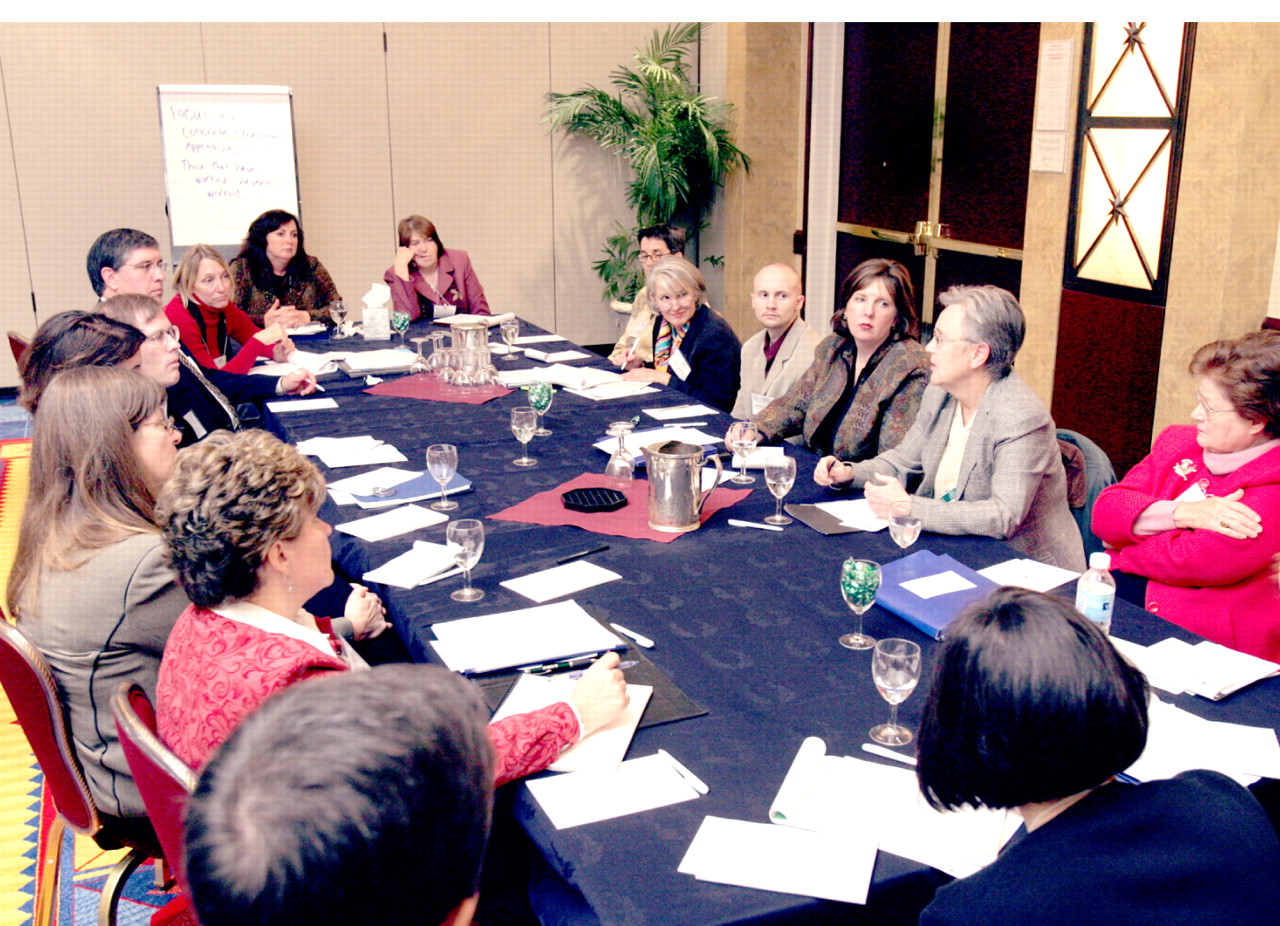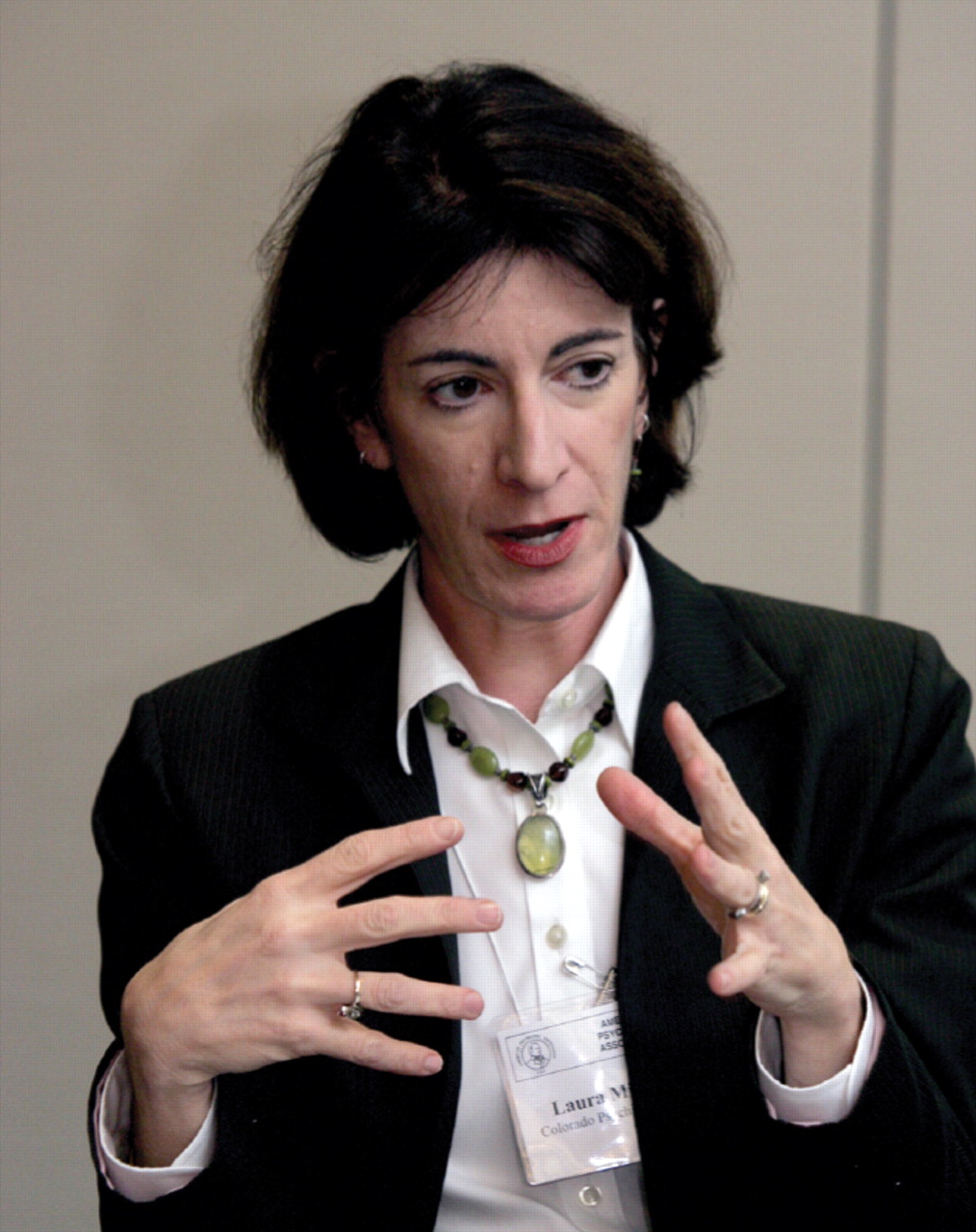Attendees at a recent meeting for APA district branch and state association (DB/SA) executives made it clear that they wanted additional tools to help their organizations attract new members and retain existing ones and needed funding to improve access to mental health care.
The 2006 Leadership Conference, held in November in Washington D.C., offered 42 DB/SA representatives information from experts on a range of issues affecting their members. Subjects included tips for managing scope-of-practice issues such as psychologist prescribing, lobbying, and methods for generating positive publicity for their psychiatrist members.
The most popular sessions explored access-to-care concerns and addressed efforts to recruit new DB members and retain current ones.
Those issues resonated with Paula Margulies, executive director of the San Diego Psychiatric Society. San Diego psychiatrists, she said, often join that DB looking to participate in the struggle to keep psychologist-prescribing legislation from passing in the California legislature, where it has been introduced multiple times. The DBs/SAs offer a way for psychiatrists to organize on such key issues, establish relationships with legislators, and develop a unified response, she said.
Media Training Valuable
Media training by APA staff provided insights the executives could share with their members on how to communicate with representatives of different types of media outlets and get their views across in the clearest and most concise manner possible. APA staff who participated in the training urged attendees to try to place as many informative articles and story ideas as possible in their local media as a way to urge better mental health policy and publicize district branch activities. Such placement, they pointed out, is free and more credible to readers than advertising.
Carolyn Robinowitz, M.D., APA president-elect, told the DB/SA executives that she will dedicate her presidential term to improving how psychiatry communicates its message to the world. As one effective strategy, she encouraged the executives to find personal stories of successful struggles with mental illness to show the media that mental illness is real and that there are real and effective treatments for it.
After the media training, Paige De Mille, executive director of the Utah Psychiatric Association, said her office will benefit in particular from the information on communication and media relations.
“The media training helped with the fear that we had to respond to every call from any media outlet, instead of focusing on the important calls that deal directly with us,” De Mille said.
Now she will be able to help her DB develop a more strategic approach to deciding where to place its limited resources, instead of taking on any worthy project a member suggests.
“May be this way we can focus a little better and get more done,” she said.
Financial Advice Offered
The meeting also offered presentations and discussions on financing and improving the DBs/SAs' non-duesrelated income. That issue was important to Margulies, who described a “crisis” in funding as pharmaceutical companies tightened their grant-making in recent years.
During a discussion of strategies to improve funding, Meagan Floyd, executive director of the Maryland Psychiatric Society, described her office's unusual ability to earn significant income from the publication of an annual directory of its member physicians. The directories are free to members, but they include paid ads and are sold to nonmember physicians and private companies.
“It's tough to get grants now because all of the applications are different, and the information they require varies a lot, so we're always looking for alternate sources of income,” Floyd said.
Other attendees said their DB/SA has decided to begin assessing late fees for members who are late paying their dues and small fees for member events that used to be free, such as CME sessions and dinners.
Discussions among the DB/SA executives also brought to light better ways in which their offices could serve their members, such as regular queries asking what types of information the members would like the office to provide. One such request resulted in a popular small-business tax seminar for solo practitioners.
Among efforts to expand membership, attendees were told to conduct outreach to as many psychiatry residents as possible with the understanding that for every 10 they contact, only one will become a member.
Conference organizers described this second DB/SA executives' conference as a success and said they hope to hold such meetings every two years. ▪


